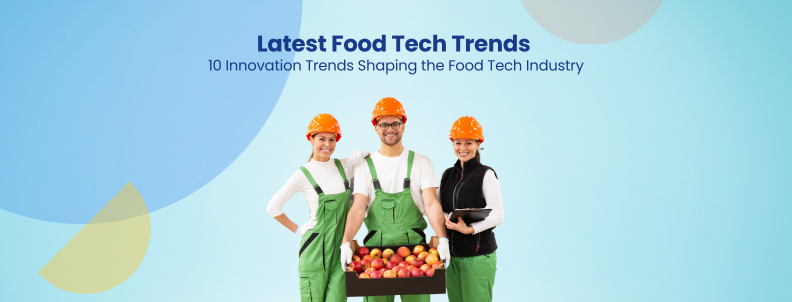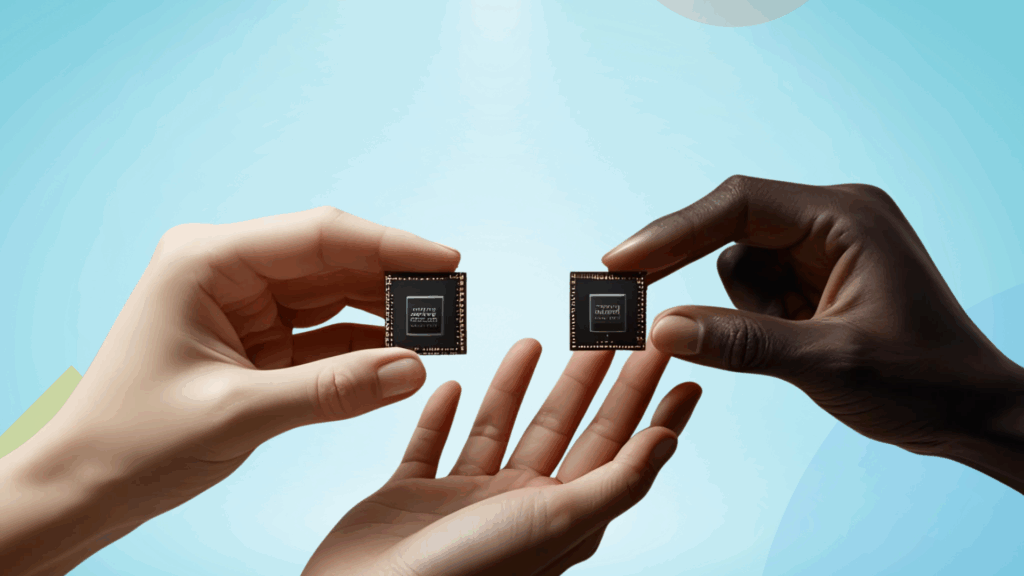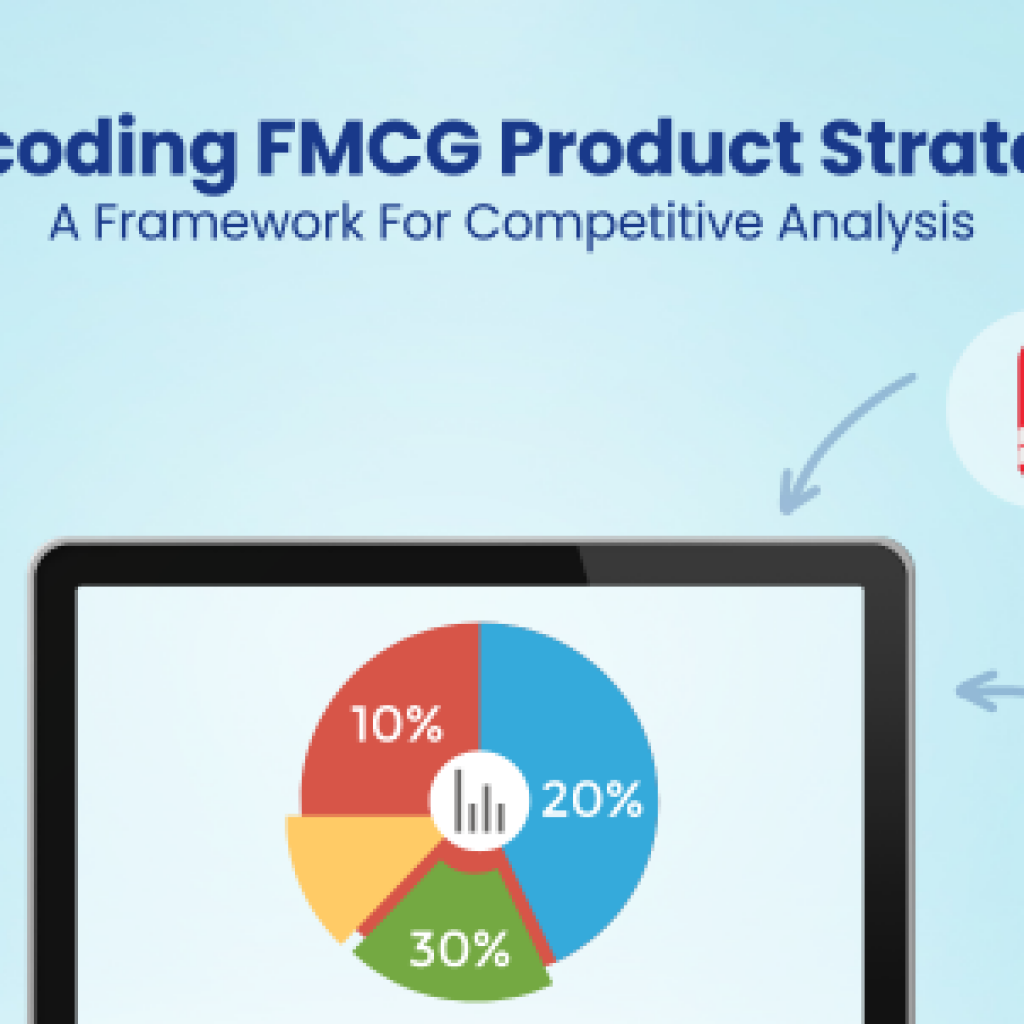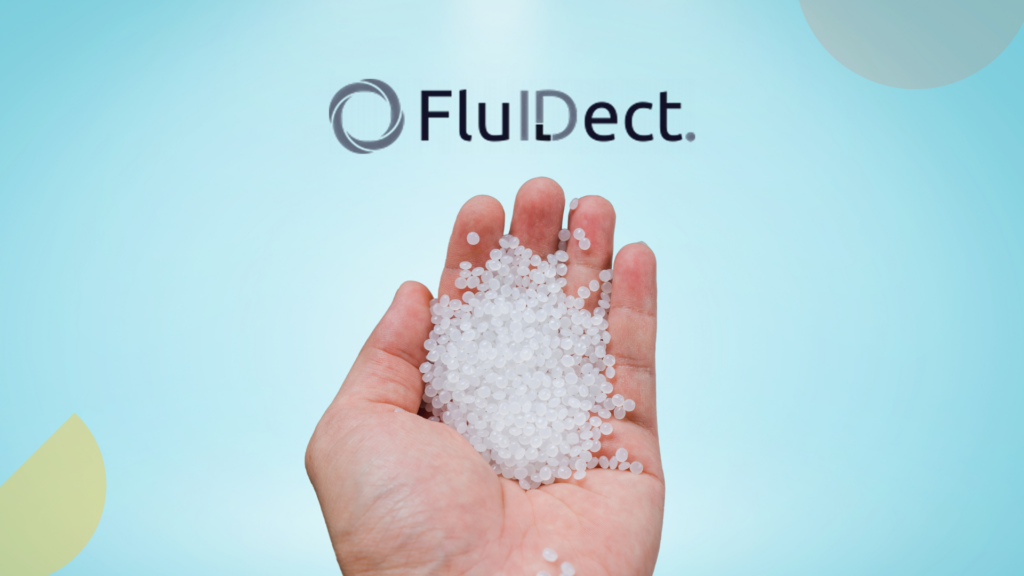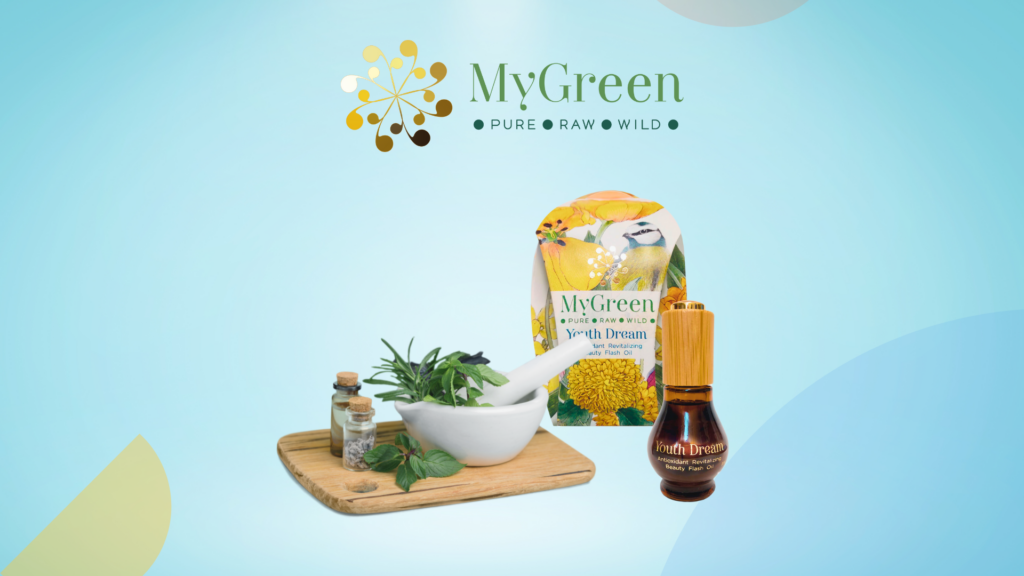Emerging food tech trends such as alternative proteins, nutraceuticals, and other innovative technologies present viable solutions by making nutritious food more accessible and affordable. Alternative proteins, for instance, offer sustainable and less resource-intensive sources of nutrition compared to traditional livestock. Nutraceuticals — fortified foods and supplements — enhance diet quality and prevent nutrient deficiencies, even in low-income settings. These advancements not only address food security but also promote environmental sustainability.
This article will explore how these and other food tech trends in 2025 can transform our approach to global nutrition and food accessibility, potentially mitigating the issues.
However, our report covers 10 Food Tech Trends that you can get by filling out the form below:
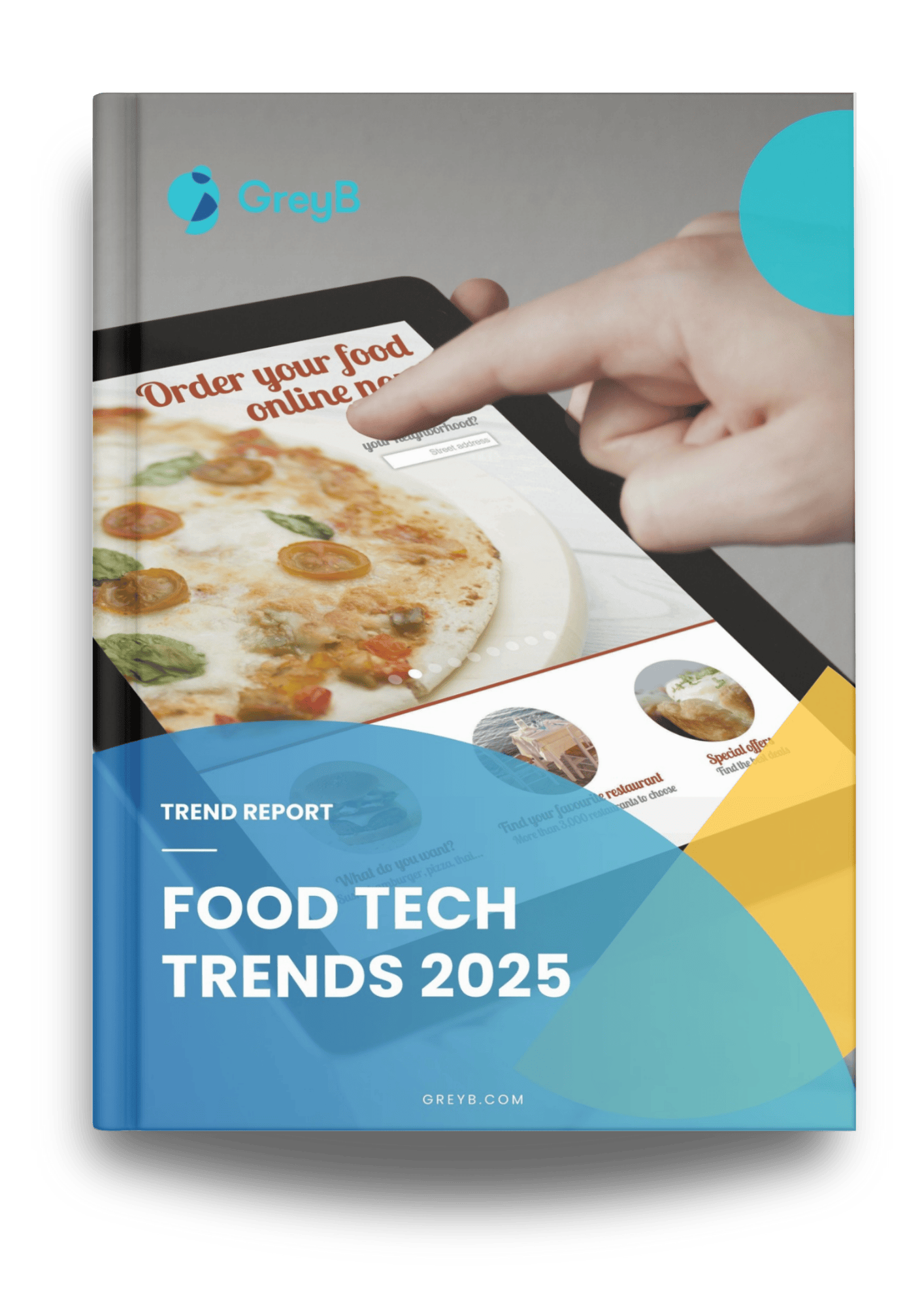
Let’s explore the trends:
Trend 1: Alternative Proteins
Plants will become the dominant alternative protein source due to their low impact on the environment and consumers’ perception of positive health benefits. In addition, alternative proteins consume less land and water and produce significantly fewer greenhouse gas emissions and pollutants than conventional proteins.
Further, alterations in consumer behavior and an increased interest in alternative protein sources have paved the way for expansion in the alternative protein industry. Plant protein, insects, Mycoprotein, and Cultured meat are the leading alternative protein sources. (Source)(Source)
The global alternative proteins market was valued at $14.76 billion in 2021 and is expected to reach $37.64 billion by 2030, with a CAGR of 11.1%.
In 2021, North America held the highest market share, 34.9%, out of the global alternative proteins market. During the forecast period, it is anticipated that the European alternative food market will grow rapidly due to the rapid development in the number of food producers with sustainable supply chains. (Source)
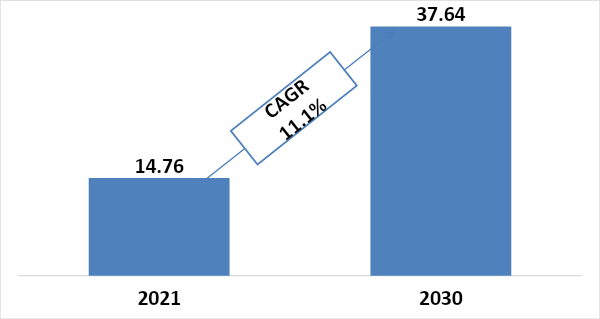
Advantages of Using Alternative Proteins
Rise In Per Capita Income of Consumers – The increase in the per capita income resulted in an increasing demand for dietary intake for humans and animals. The body cannot produce nine essential amino acids supplemented through dietary intake. Therefore, any food that contains these nine amino acids is a complete source of protein. Further, the high amino acid and vitamin content of plant-based protein alternatives is also a valuable source for animal feed, which has emerged as a concern worldwide. It has increased the market share of alternative proteins. (Source)(Source)
Maintaining Sustainability – Consumer focus on sustainability, growing health concerns, and a desire for exceptional flavor in meat analogs are a few reasons boosting demand for meat analogs, which is predicted to impact the alternative protein market market growth positively. Texturized vegetable proteins have an elastic, spongy texture and various other textural features that make them suitable for use in meat-mimic products. Furthermore, meat analogs have a longer shelf life and are safer than meat products. Hence, they are employed in various food products, which boosts the market growth of alternative proteins. (Source)
Challenges of Alternative Proteins
Compliance with Stringent Regulatory Requirements – More regulatory guidance regarding edible insects in the food industry is needed. Consumption of edible insects varies from person to person. It slows the growth of insect-based protein. Furthermore, allergies connected with various alternative proteins, such as plant-based and insect-based proteins, limit market expansion. Secondly, strict regulatory compliance for the livestock industry is limiting market expansion. Despite a wide range of proteins on the market, not all are safe for use in the livestock business. It results in significant investments in alternative proteins for various animals. (Source)
Trend 2: Nutraceuticals
In recent times, nutraceuticals have seen a rapid rise in popularity. They are employed as an alternative or in addition to pharmaceutical treatments to prevent and treat various diseases. (Source)(Source)
The global nutraceuticals market was valued at $454.55 billion in 2021 and is expected to reach $991.09 billion by 2030, with a CAGR of 9%.
In 2021, the Asia Pacific region had the largest market share of more than 30%. The APAC market is likely driven by people’s growing concerns about their health and their growing knowledge about nutraceuticals. The market has been boosted by several factors, such as an increasingly aging population, shifting lifestyle preferences, and healthcare spending habits. The United States constituted around 24.6% of the global nutraceuticals market in the North American region. (Source)
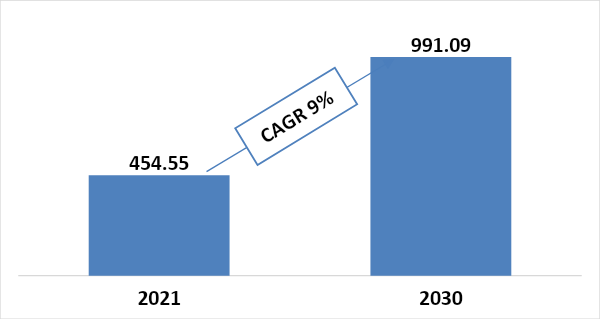
Advantages of Using Nutraceuticals
Combating Health Problems – Nutraceuticals such as prebiotics, probiotics, dietary fiber, and other herbal or natural foods help to treat health issues such as obesity, cardiovascular disease, cancer, osteoporosis, arthritis, diabetes, cholesterol, and so on. As a result, nutraceuticals have led to a new era of medicine and health, in which the food industry has become a research-oriented sector. (Source)
Treating Inflammation – Nutraceuticals can prevent and treat inflammation due to phytochemicals. It can also reduce oxidative stress in chronic inflammatory disorders such as pneumonia, cancer, rheumatoid arthritis, and autoimmune diseases. The internet and media have also made it easier for consumers to purchase nutraceuticals. (Source)(Source)
Increase In Average Life Expectancy – Nutraceuticals are preventive medicines that have increased life expectancy. Recognizing diseases before they become serious problems or harm patients allows for faster treatment and recovery. Furthermore, treatment may not be necessary at all. Nutraceuticals can also slow down the aging process to increase life expectancy. Current research has shown that herbal nutraceuticals can help with oxidative stress disorders such as Alzheimer’s, cardiovascular disease, allergies, diabetes, inflammatory diseases, cancer, Parkinson’s disease, and obesity. (Source)
Challenges of Nutraceuticals
The nutraceutical industry constantly faces challenges in developing and producing safe and effective products. Some of the challenges include the following:
Poor Regulatory Framework and Lack of Trustworthiness: The nutraceutical industry is not as regulated as the pharmaceutical industry, leading to product quality and safety concerns. In some markets, like India, consumers must know the benefits and risks of nutraceutical products. This lack of education and information has resulted in skepticism among consumers and a reluctance to adopt nutraceuticals as part of their daily regimen.
Evidence-based Research: More robust and scientifically rigorous research is needed to support the claims made by nutraceutical products.
Standardization: The manufacturing of nutraceutical products needs to be more standardized, leading to consistency in product quality and efficacy.
Consumer Education: Many consumers need to be fully informed about the benefits and risks associated with nutraceutical products, leading to confusion and misinformation.
Quality Control: Ensuring the quality and consistency of nutraceutical products can be challenging, especially when maintaining potency and purity over time.
Dilution and Adulteration—Adulteration fraud is said to be shared in nutraceuticals. Scammers add extra substances without mentioning them on the label, which can endanger customers’ lives. Adulteration with pharmaceutical drugs is also a problem. Bodybuilding and low-weight supplements have been contaminated with drugs that boost their effects.
Overall, the nutraceutical industry is facing the challenge of balancing product innovation and efficacy with the need for safety and regulation while ensuring that the industry remains sustainable and profitable in the long term. (Source)(Source)
Explore the recent innovations in food technology! Learn about leading startups creating insect-based proteins, plant-based meat alternatives, and more. Get your hands on our Food tech startup report to uncover the latest trends shaping the future of food.
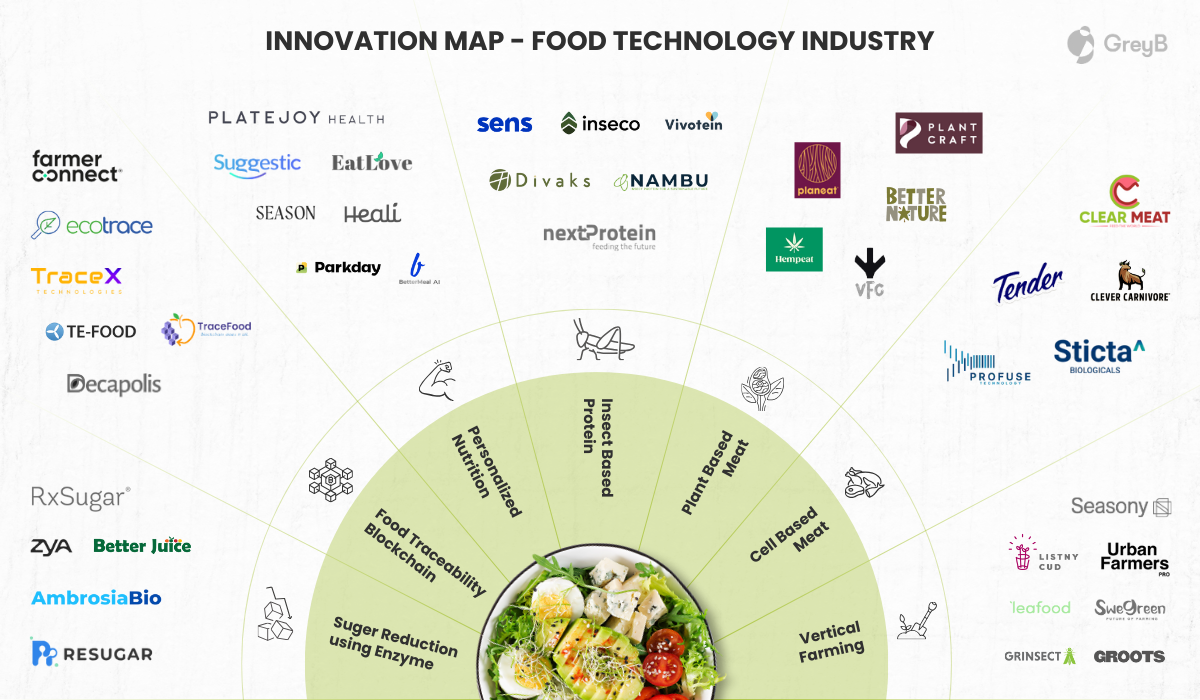
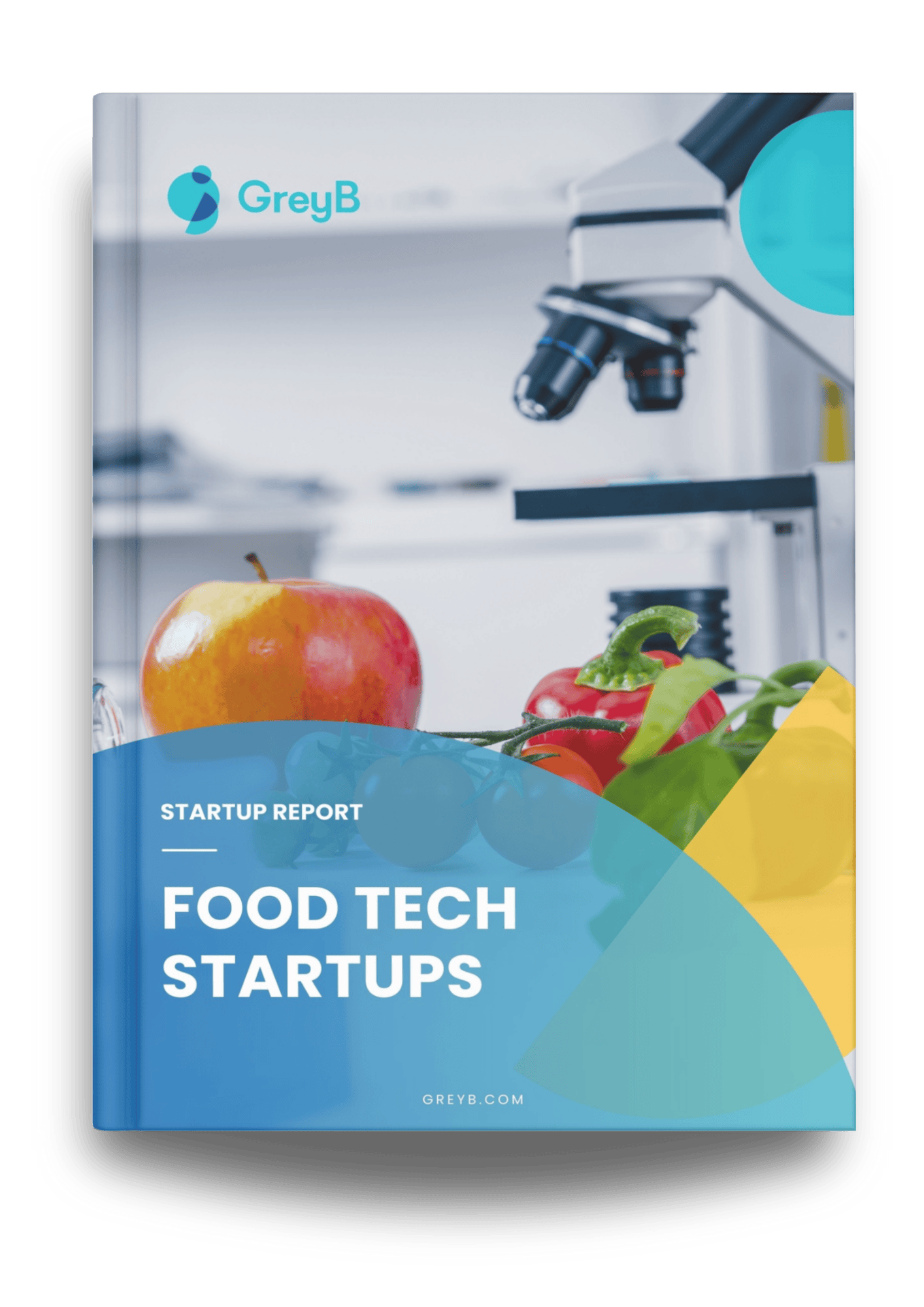
Food Tech Startups
Read The ReportTrend 3: Sugar Reduction
Sugar reduction technology is a global macro trend, allowing less sugar while maintaining flavor.
Health concerns such as obesity, diabetes, cardiac disease, and skin issues have moved consumer interest to low-calorie and sugar-free items, thus driving the trend. Diet-conscious customers’ need for low-sugar foods and beverages is giving businesses profitable opportunities in the future. Food safety authorities’ efforts and endorsements to reduce sugar and eliminate trans fats in processed diet items to prevent diseases are also pushing the industry. (Source)(Source)
The global sugar reduction market was valued at $16.4 billion in 2021 and is expected to reach $20.1 billion by 2026, with a CAGR of 6.2%.
In 2020, North America held the highest market share at 35%, followed by Europe at 25% and the Asia Pacific at 20%. North America dominated the market due to the rising awareness of healthy diet solutions with low or no sugar and zero calories. In addition, the rising older population and diabetes and obese patients are also driving the market in North America. (Source)
Global Sugar Reduction Market Size during 2021-2026 ($Billion)
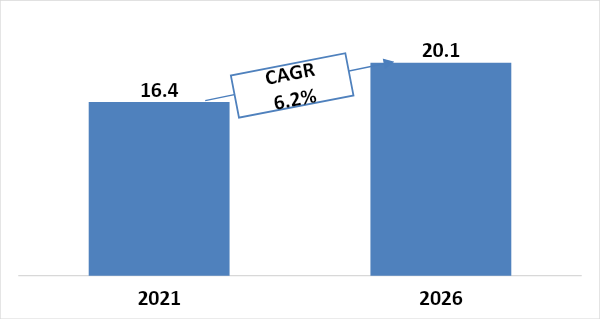
Advantages of Using Sugar Reduction
Diabetes and Obesity – According to the World Health Organization (WHO), diabetes affects 422 million people worldwide, with the majority living in low- and middle-income nations. Furthermore, according to WHO data, 1.9 billion mature adults worldwide were overweight in 2016, with 650 million obese. The rising number of diabetic and obese people propels the Sugar Reduction Technology Market. (Source)
COVID-19 – The COVID-19 pandemic has raised customer awareness, causing the market to adjust to stay ahead of the competition. Technological advancements in the Sugar Reduction Technology market that enable efficient manufacturing, expanded product portfolio, sophisticated design and packaging, practical operational maintenance, and sales monitoring are essential growth factors. Therefore, Sugar Reduction Technology Market Revenue is predicted to increase at a healthy CAGR due to massive millennial demand and growing markets. (Source)
Challenges of Sugar Reduction
Lack of Sweetness Intensity – Sugar reduction in food and beverages is complicated due to the sweetness and related crunch that sugar lends to nutritious options such as biscuits and cakes. These usually lack natural non-sugar sweeteners such as stevia or monk fruit. Non-sugar sweeteners are primarily bitter and do not have the same sweetness intensity as sucrose. Although stevia extract is 200 times sweeter than sugar, and monk fruit extract is 150 times sweeter, not everyone enjoys their flavor. This problem is impeding the growth of the Sugar Reduction Technology Market. However, startups are nevertheless taking up the challenge. (Source)
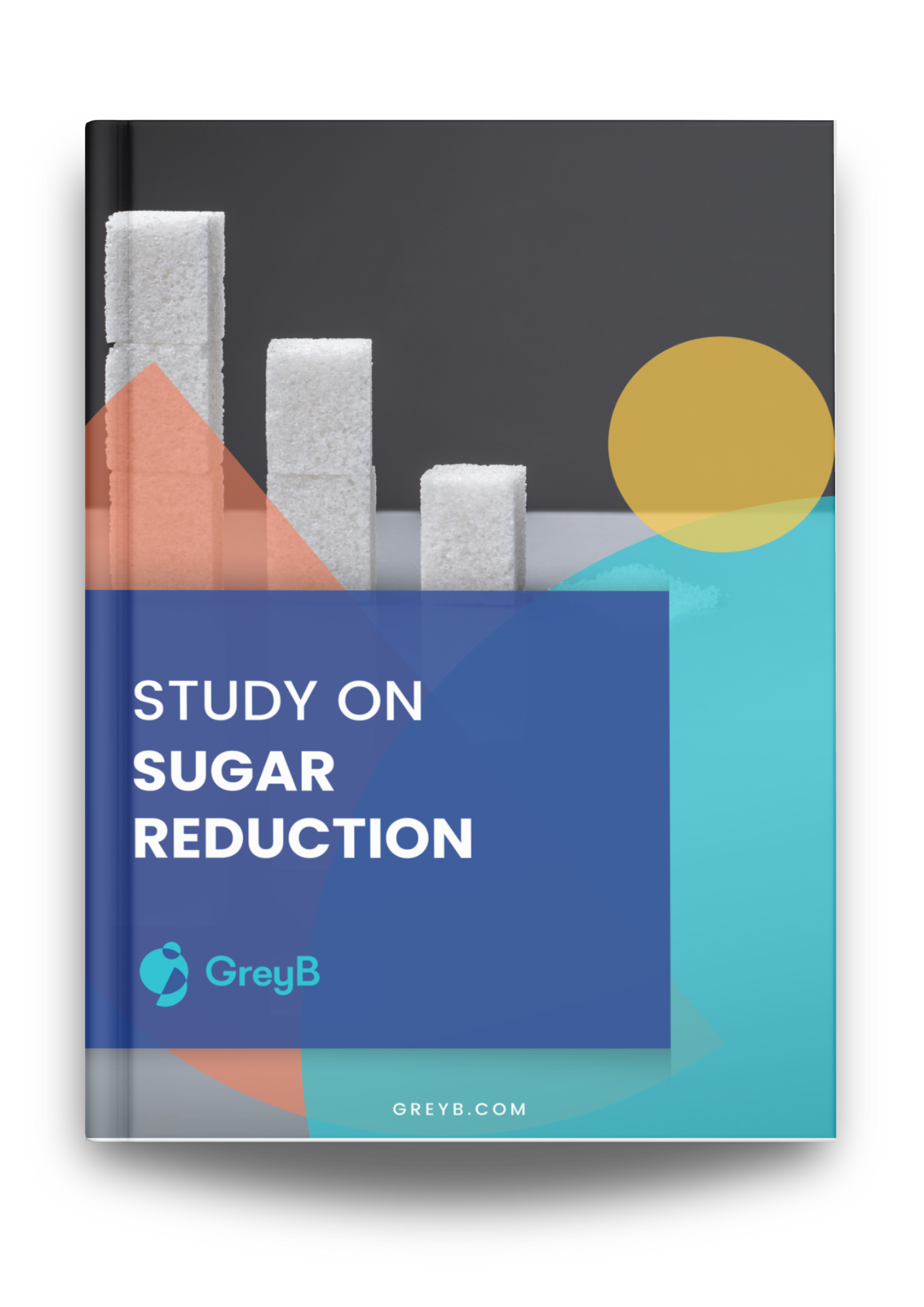
Sugar Reduction Report
Download ReportTrend 4: Sustainable Food Packaging
The food industry is pressured to find sustainable alternatives and fulfill increasing customer needs for sustainable food. Many businesses have devised creative ways to replace traditional food packaging materials. In the coming years, the sustainable food packaging market will likely expand as consumers become more aware of the dangers of using plastic for food packaging. (Source)(Source)(Source)
In 2019, the global sustainable food packaging market was valued at $144.66 billion and is expected to reach $326.32 billion by 2027, with a CAGR of 10.7%.
The food sector is anticipated to dominate global sustainable packaging during the forecast period. This is mainly due to the increasing use of recycled plastic, which is available at a low cost and is also beneficial to the environment. In 2019, the global sustainable food packaging market accounted for around 51.6% of the total global sustainable packaging market. A rising number of restaurants and diners drive the industry’s expansion. (Source)(Source)
Global Sustainable Food Packaging Market Size during 2019-2027 ($Billion)
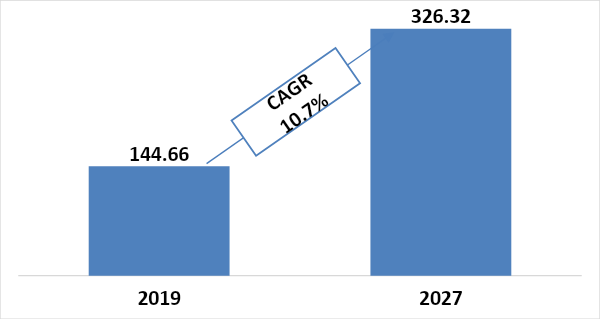
Advantages of Using Sustainable Food Packaging
Environmental Effects – Eco-friendly and sustainable packaging is frequently built from recycled materials, which lowers resource waste during production. The production process is also more efficient, reducing the consumption of resources and the negative environmental impact on organizations. (Source)
Strengthening Brand Image – Environment-friendly packaging has boosted brand images by proving to be responsible and careful about the environment. This has resulted in excellent sales, increasing the revenue of the market. (Source)
Green Packaging with More Storage and Space – Sustainable packaging is more creative and eco-friendly with more space. This, in turn, reduces the freight costs as the transport costs reduce, thereby making it beneficial in the long run. Sustainable packaging can also expand the product line with a smaller package footprint. (Source)
Challenges of Sustainable Food Packaging
Cost Considerations – The primary goal of any industry is to minimize costs while increasing profits. Most businesses strive to achieve this without sacrificing the quality of their packaging design. Compared to traditional packaging methods, the cost of materials used in sustainable packaging is higher. In the long term, this is costly for businesses. (Source)
Meeting Current Standards and Consumer Expectations – Customers can be restless, and manufacturers certainly don’t want to offer them any incentive to switch to a competitor’s goods. While demand is turning toward sustainability, customers still anticipate a similar experience to what they have had in the past, which poses a significant issue. (Source)
Trend 5: Personalized Nutrition
Personalized nutrition has gained popularity in recent years due to several factors. The increased focus on health and wellness has led many people to take a more proactive approach to their health and look for ways to improve it. In addition, advances in technology and science have enabled the development of sophisticated tools for measuring and analyzing various aspects of an individual’s health, such as genetic and biochemical markers.
Personalized nutrition considers an individual’s unique needs, goals, and preferences and provides tailored recommendations based on that information. This personalized approach is seen as a way to achieve better health outcomes by addressing an individual’s unique health status and biochemistry. Personalized nutrition fits the growing trend of precision medicine, which seeks to tailor medical treatments to an individual’s health needs.
Consumers are also increasingly interested in using data and technology to manage their health and wellness. Personalized nutrition offers a way to utilize these tools to achieve better health outcomes. (Source)(Source)
The global personalized nutrition market was valued at $14.6 billion in 2021 and is expected to reach $37.3 billion by 2030. It is expected to increase at an approximate CAGR of 11.48% during the forecasted period.
The Asia-Pacific region is estimated to grow at a CAGR of 12.76% during the forecast period. In 2021, the Asia Pacific region witnessed the fastest growth. (Source)
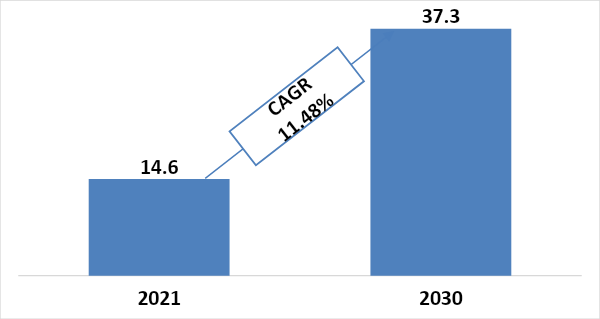
Advantages of Using Personalized Nutrition
Increase in Personalized Diets – As people have become more conscious about their health, the demand for personalized diets and supplements has increased gradually. This shift in the market for health and fitness products has increased the demand for individually customized diets. Therefore, there is an increasing trend of personalized diets as consumers are now more nutrition-specific. (Source)
Challenges of Personalized Nutrition
High Cost of Supplements – The price of supplements varies based on seasonality and origin. For example, Synthetic ingredients are less costly due to their lower production costs. Therefore, the raw materials of these supplements influence the final or total costs. Moreover, the type of packaging also affects the price of personalized supplements offered by various companies in the market. (Source)
Trend 6: Digital Food Supply Chain
A digital supply chain uses advanced technologies and insights to help stakeholders make better resource decisions based on customers’ demands. Since food supply chains increasingly rely on big-data management solutions to boost collaboration and improve business performance, going digital was the natural next step.
Furthermore, in agriculture supply chains, digitalization provides an opportunity to connect stakeholders, such as farmers, processors, and distributors, on one platform. Thereby providing a means to
- (i) effectively monitor agcustomeruction,
- (ii) make informed decisions about the processing, storage, and distribution of agricultural products,
- (iii) assist with tracking and tracing the movement of food, which is critical during a food safety recall,
- (iv) track agricultural products. (Source)(Source)
Data management, interoperability, cybersecurity, and infrastructure challenges remain a roadblock to a seamless digital supply chain despite the perks.
The good news is that with challenges come solutions, and we are here to help you find them. This article will discuss companies and startups that are providing and researching digital food supply chain solutions for significant challenges.
Trend 7: Food Waste Management
According to the Food and Agriculture Organization (FAO), approximately one-third of global food is wasted. As a result, an estimated ~2.5 billion tons of food is lost or wasted annually.
The wasted food, in actuality, represents a significant loss of resources. Boston Consulting Group (BCG) estimates that this wasted food is worth $230 billion. Not only that, but it also contributes to greenhouse gas emissions, with food waste accounting for 8% of global emissions. (Source)(Source)
Even more so are its social implications, as it exacerbates food uncertainty and hunger in communities, especially in developing countries. In light of these factors, food waste management is crucial, with countries realizing its importance.
Both the European Union and the United States have implemented regulations to address the issue of food waste. In the EU, the Waste Framework Directive has set a goal to reduce food waste by 50% by 2030, where member states must measure and report their food waste levels periodically. The EU also established the Platform on Food Losses and Food Waste to promote cooperation and exchange of best practices among stakeholders.
In the US, the Environmental Protection Agency (EPA) developed a hierarchy of actions to manage food waste.
Additionally, several states have enacted laws related to food waste, such as the California Good Samaritan Food Donation Act, which protects food donors from liability when donating to a non-profit organization.
Due to these regulations, companies are forced to work on creating long-term solutions. Thus, the food waste management market is worth millions of dollars.
In 2021, the global food waste management market was valued at $39.55 billion and is expected to grow and reach $64.03 billion by 2030. The market is expected to increase at an approximate CAGR of 5.7% during the forecast period due to the growing awareness about food waste(Source)
Global Food Waste Management Market Size during 2021-2030 ($Billion)

Despite the many benefits of food waste management, there are still hurdles to overcome. The major ones are the proper identification and sorting of waste, transportation logistics, and safe disposal or recycling of waste materials. Effective waste management solutions require advanced technologies and efficient processes to handle food waste appropriately, thus minimizing its impact on the environment and public health.
Additionally, tracking and monitoring food waste throughout the supply chain is necessary to identify inefficiencies and areas for improvement. Therefore, developing innovative solutions to these challenges will be essential to reducing food waste and creating a more sustainable food system.
Trend 8: Freeze-Drying Technology (Food)
Food companies and their customers are increasingly looking for light, easy-to-store products with a longer shelf life, which explains the popularity of freeze-drying technology. Moreover, with this technology, manufacturers don’t have to compromise on the products’ nutritional value, flavor, and appearance, which is a problem with other preservation methods.
Due to these benefits, global freeze-drying food technology is expected to grow and reach $2.69 billion by 2025. The market is expected to increase at an approximate CAGR of 8.5% during the forecast period (2020-2025).
Global Freeze-Drying Food Technology Market Size during 2020-2025 ($Billion)

The key factors propelling the expansion of the market are the soaring demand for lyophilized(freeze-dried) products, food preservation, and technological improvements in lyophilization. (Source)
Trend 9: Food Robotics
With the scarcity of skilled and cost-effective labor, the food industry is adopting automated production systems to achieve greater precision and yields. This shift is driving the growth of the food robotics market and opening up a world of possibilities for R&D heads to innovate and revolutionize the food industry.
According to a recent report, the global food robotics market was worth $2.24 billion in 2021. Furthermore, experts predict that the industry will reach a staggering $5.36 billion in the upcoming years, with a CAGR of 9.7%. (Source)
Global Food Robotics Market Size during 2021-2030 ($Billion)
However, it isn’t just one; many other factors are contributing to the growth of the food robotics domain. With the need for social distancing and hygiene protocols, especially after the COVID-19 pandemic, robots have become the ultimate solution for mundane tasks like packaging, repackaging, and palletizing. As a result, humans can focus on other important aspects of the food production process while the robots take care of the repetitive and tedious tasks. (Source)(Source)
Due to their substantial advantages, such as improved supply chain performance and automation, food robotics can potentially revolutionize the food industry. But first, several technical challenges to be overcome.
- The complexity of food products- Food products can have different shapes, sizes, textures, and consistencies, making it difficult for robots to handle and process them without causing damage or affecting quality. This problem requires advanced robotic systems to understand and handle differentiated food products.
- Ensuring food safety – Contamination by bacteria or other pathogens can cause serious health risks for consumers, and robots must be designed and maintained to meet strict hygiene and sanitation standards. This requires specialized materials, coatings, and regular cleaning and maintenance protocols.
- Furthermore, food recognition for robots is a challenging task that varies depending on the operation conditions. It becomes particularly difficult to determine the position and posture of food items in a 3D area with overlaps and complex positioning, such as in the RBP scenario. Advanced systems are needed to differentiate between the items and choose what’s needed.
- Lastly, it has a high installation cost. Most industries avoid using automated robots due to high installation costs. The extra cost of turning individual robots into a more comprehensive system with sensors, human interface, safety barriers, and programmable logic controllers creates a challenge in the market growth for robotics in the food industry.
Trend 10: 3D Food Printing
In March 2023, a group of engineers successfully made a cheesecake from scratch on a 3D printer. This technological marvel made people wonder how it happened and what advancements have been made in this field in recent years.
Well, to answer the first question, according to a research paper published in the Journal NPJ Science of Food, this cheesecake was made from seven raw ingredients: graham cracker, peanut butter, Nutella, banana puree, strawberry jam, cherry drizzle, and frosting. It was a breakthrough in 3d food printing, as until now, most 3D-printed foods have been made with uncooked ingredients. (Source)
One of the most exciting developments in 3D food printing is the ability to personalize food to individual preferences and needs. With this technology, it is possible to customize a printed food item’s nutrition and portion control and print food in unique shapes and designs. This level of personalization could be a significant game-changer for the food industry, leading to greater satisfaction among consumers who crave individualized food experiences.
Due to these advantages and features of 3D printing, its future market seems lucrative.
In 2021, the 3D food printing market generated a revenue of $140 million. However, experts predict a remarkable surge in its growth, with expectations reaching an astounding $8.49 billion by 2030. This extraordinary expansion is projected at an approximate compound annual growth rate (CAGR) of 58.55% throughout the forecast period.
The North American region will also witness the highest 3D food printing market share. The region’s expansion is fueled by increased awareness of nutrient consumption and high disposable income. Therefore, regional market players are developing 3D-printed meals to tackle emerging health issues.
Furthermore, the 3D Food Printing market in the Asia Pacific is also expected to grow speedily during the forecast period. (Source)
Global 3D Food Printing Market Size during 2021-2030 ($Billion)

Despite its many advantages, this technology also has some challenges that need to be ironed out before becoming a household name. Some common ones are ensuring print accuracy while maintaining the appropriate texture. Meanwhile, sanitation needs to avoid contamination and establish shelf life, also ranking high on the list of challenges.
Fortunately, some startups in this domain are working hard to improve 3D printing. Therefore, we have compiled a list of the best ones working on making 3D food printing a reality.
Conclusion
When nearly all industries suffered in the pandemic, Food Tech turned adversity into opportunity. Most startups flourished in that time as VC investment shot up to $39.3 billion in 2021, per Pitchbook. Even in 2022, Food tech companies have collectively raised billions of dollars to invent new ways of producing food. (Source)
Food tech funding reached $2 billion in the quarter through 205 venture capital deals, an approximately 14% decrease in funds versus the previous quarter, marking the eighth quarter of declining investments across the category. (Source)
The demand for and research development of these trends will grow in the coming times, so investments are expected to pour into the Food Tech sector.
How Can We Help You?
We support industry-leading R&D and Innovation professionals through complex problems. Describe your challenge, and let us bring clarity and expertise.

